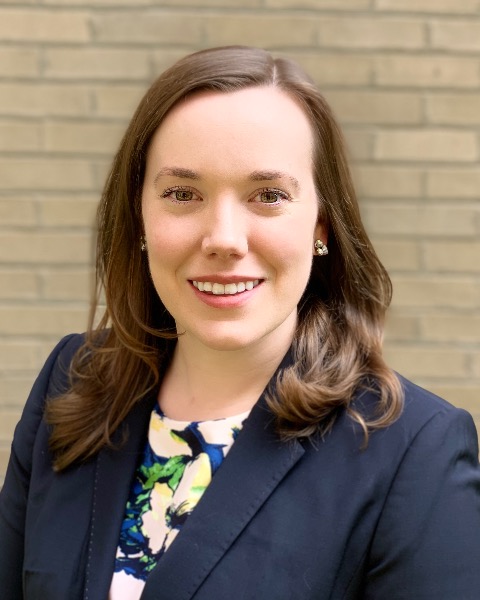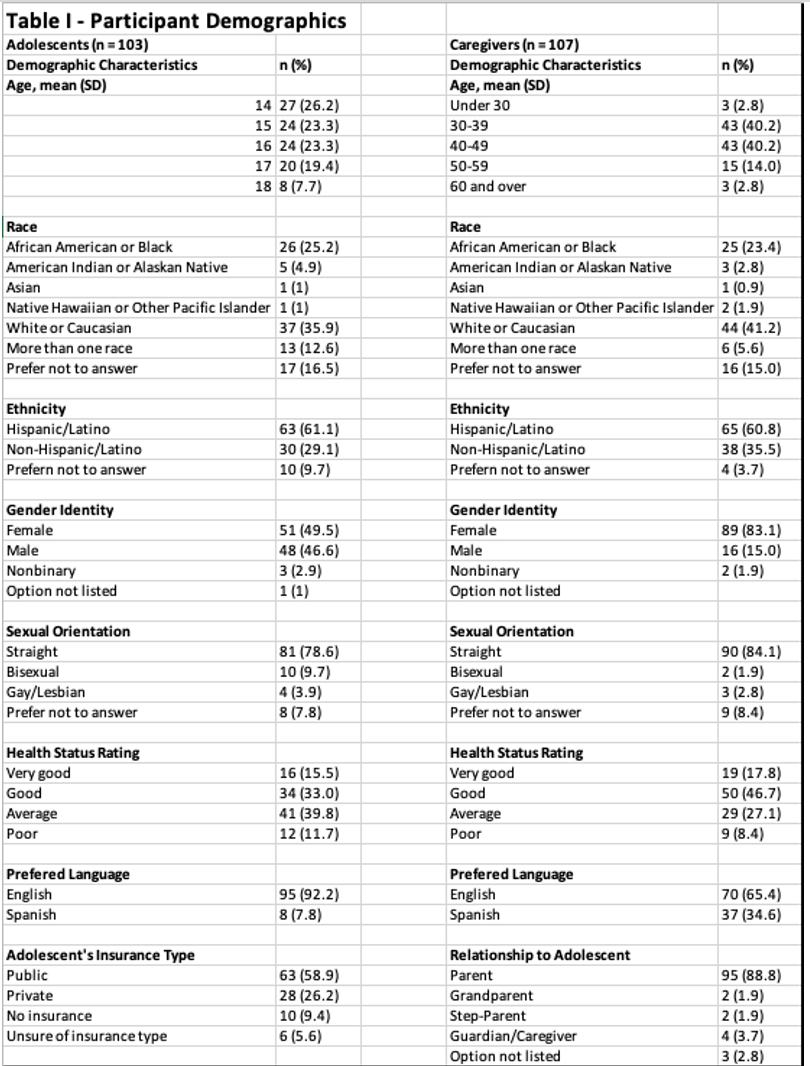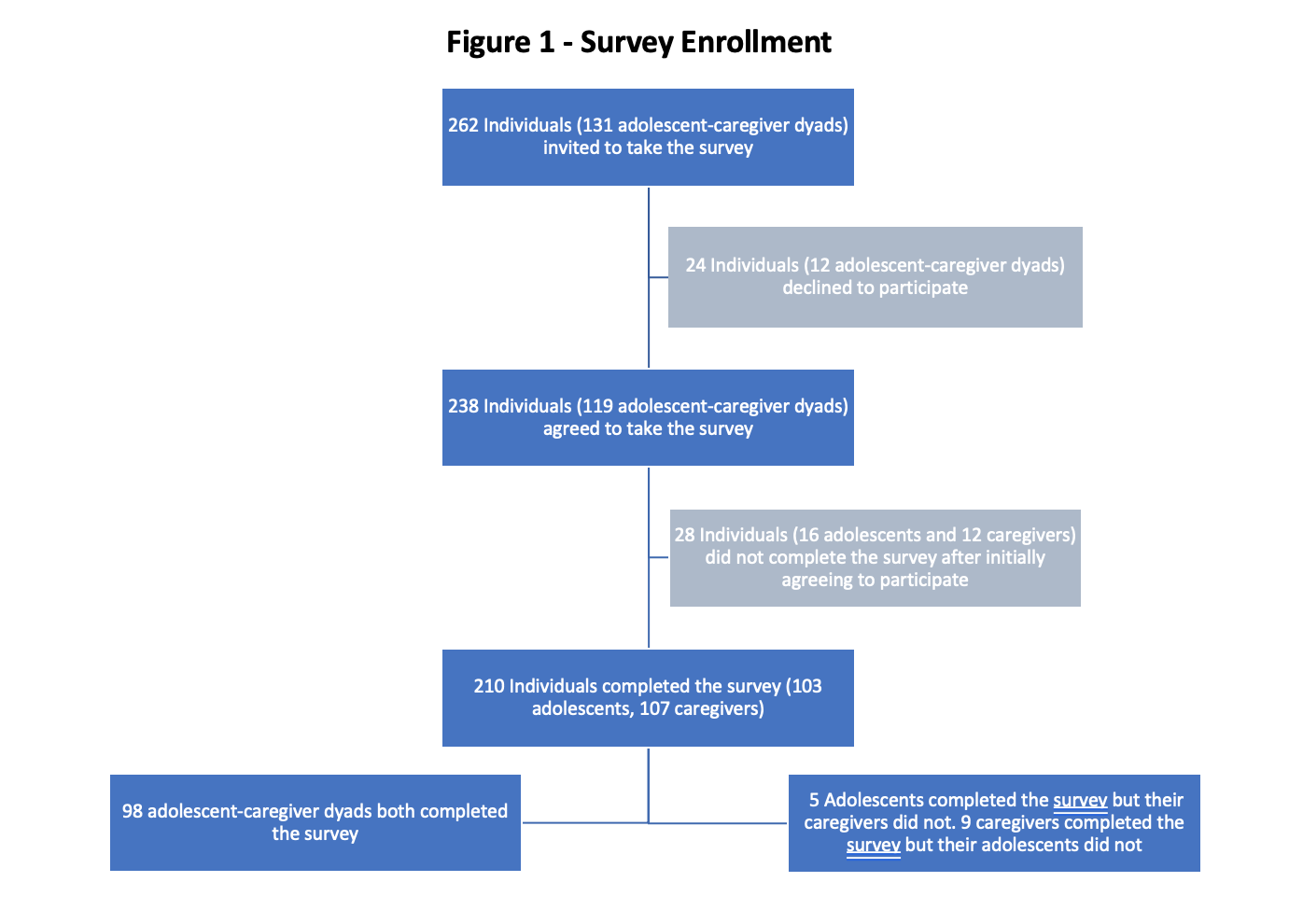Emergency Medicine
Session: Emergency Medicine 11: Potpourri
407 - Adolescent and Caregiver Attitudes Regarding Confidential Reproductive Healthcare in the Pediatric Emergency Department
Monday, May 6, 2024
9:30 AM - 11:30 AM ET
Poster Number: 407
Publication Number: 407.3330
Publication Number: 407.3330

Julia Thrash, MD (she/her/hers)
Fellow
University of Texas Southwestern Medical School
Dallas, Texas, United States
Presenting Author(s)
Background: Little is known about adolescent-caregiver dyad attitudes towards confidential sexual and reproductive health (SRH) services in the Pediatric Emergency Department (PED).
Objective: Compare the attitudes of dyads about SRH services in a Texas PED and characterize the age dyads report confidential services should begin for adolescents.
Design/Methods: Adolescents and their caregivers in the PED were each invited to take a brief, online, separate, survey in English or Spanish, about their attitude towards SRH services. Attitudes were assessed with eight items asking how much they agree with statements across three domains: comfort; building trust; benefits to SRH services. Responses were dichotomized into agree or disagree. Three items asked participants at what age teens should have access to private interviews, STI treatment, and contraception. Chi-square tests compared responses across adolescent and caregiver groups. McNemar’s test evaluated differences between dyadic pairs.
Results: Among 262 individuals approached, 210 completed the survey (80% response rate) of which 98 were adolescent-caregiver dyads. Among 103 adolescents, 50% were female and averaged 15.6 years (SD 1.3). Among 107 caregivers, 83% were female, 80% were 30-49 years, and 35% completed the survey in Spanish. Overall, among the attitude items, adolescents were statistically more likely to agree with four of the items (p’s < 0.05) than caregivers, and caregivers were more likely to agree in two items (p’s < 0.05) than adolescents. For example, 90% of caregivers agreed that they “feel comfortable talking to my teen [or parent] about sex” compared to 53% of adolescents agreeing (p < 0.01). In dyadic analysis, three items showed concordance: confidential discussions build trust with the teen (79% concordant, McNemar S = 13.2; p = 0.07); benefits to confidential discussions (77% concordant, p = 0.01); comfort with teens discussing SRH with their physician (70% concordant, p = 0.02). One item showed discordance: comfort talking to my caregiver [or teen] about SRH (51% discordance, p < .01). For the age items, adolescents and caregivers do not differ (p > 0.05) in selecting minors under 18 should have access to STI treatment and contraception, yet more caregivers (42%) than adolescents (19%) selected that private time with a doctor in the PED should start over age 18 (p = 0.01).
Conclusion(s): Adolescents and caregivers agree with SRH services in the PED. Interventions should focus less on confidential behaviors (prescribing, testing) and more on communication (private discussions).


.png)
